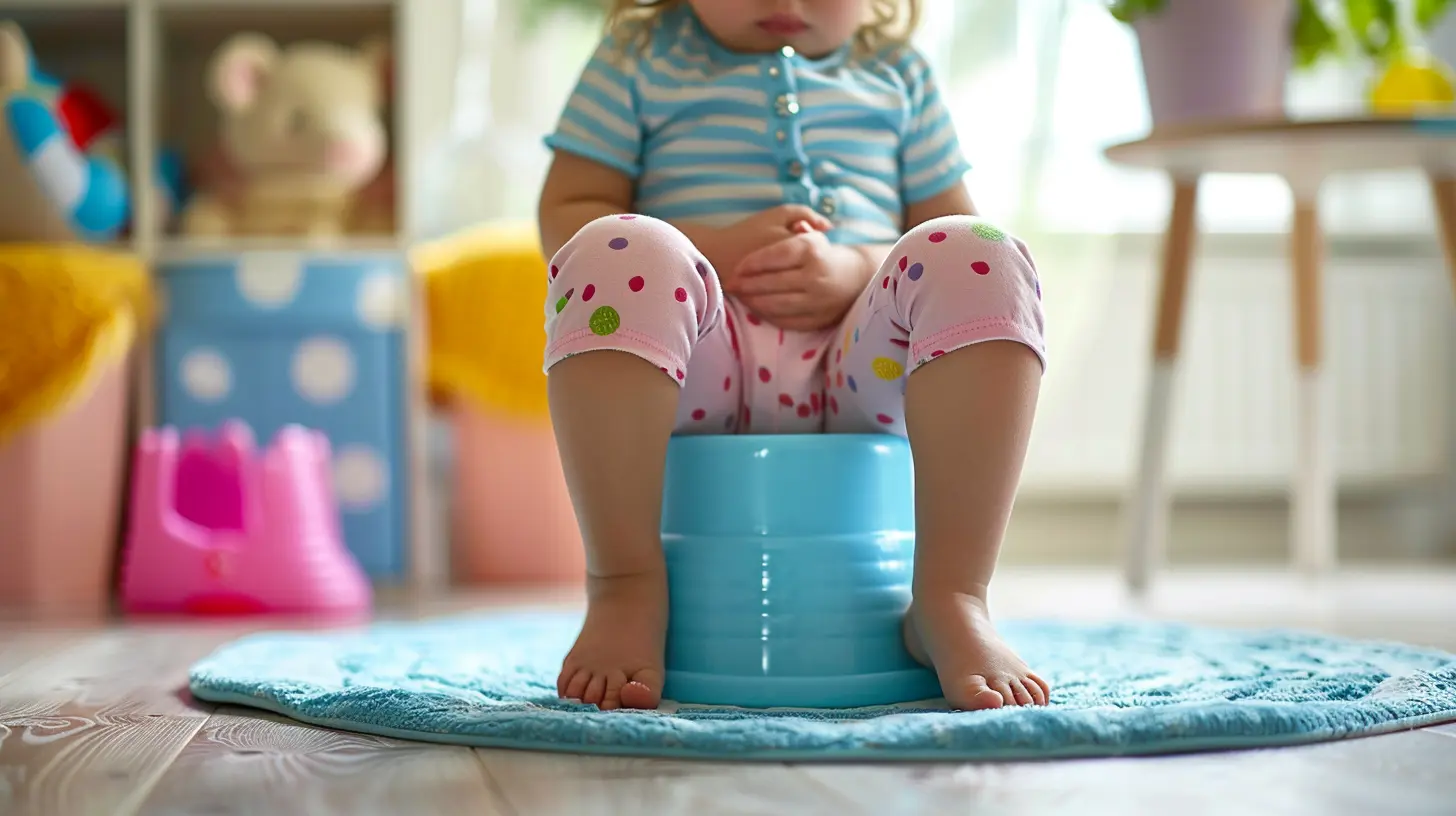Dealing with Newborn Constipation: What You Should Know
3 May 2025
Bringing your baby home is a magical time filled with cuddles, coos, and a whole lot of diaper changes! But what happens when your little bundle of joy struggles with something as basic (and messy) as pooping? Yes, I’m talking about newborn constipation—an issue that can leave both babies and parents feeling pretty uncomfortable.
If you’re knee-deep in trying to understand why your baby hasn’t pooped yet or why they seem uncomfortable during bowel movements, don’t worry—you’re not alone! Constipation in newborns is more common than you might think. In this article, we’re going to break it all down so you understand what’s going on and what you can do to help. 
What Exactly Is Newborn Constipation?
Let’s start with the basics. Newborn constipation doesn’t just mean your baby hasn’t pooped in a day or two. It’s really about the consistency of their stool and how difficult it is for them to pass it. So even if your baby is going less frequently, they might not actually be constipated if their poop is soft and easy to pass.When babies are constipated, you’ll typically notice hard, pellet-like stools that may seem dry. Your little one might strain harder than usual, look uncomfortable, or even cry during bowel movements. And as a parent, watching your baby go through this struggle? Heartbreaking! 
What Causes Newborn Constipation?
Before jumping to solutions, it’s important to understand what might be causing the issue. Babies’ digestive systems are still learning the ropes, which means things don’t always operate as smoothly as we’d like. Here are a few common culprits:1. Formula Feeding
Breastfed babies are less likely to get constipated because breast milk is easy to digest and contains natural laxatives. However, formula-fed babies might encounter more trouble because formula can sometimes be harder on their tiny tummies.2. Changing Formula
Have you recently switched brands or types of formula? That change could throw your baby’s digestion off balance and lead to constipation.3. Dehydration
Although newborns don’t need water (since they get all their hydration from milk), a small dip in fluid intake can sometimes lead to harder stools making them more difficult to pass.4. Introduction of Solids
If your baby is a bit older and starting solid foods, constipation might appear as their digestive system adjusts to handling something new. A lack of fiber in these new foods could also be the culprit.5. Underlying Medical Issues
In rare cases, constipation could signal an underlying issue like a food allergy, intolerance, or a condition affecting their digestive system. If you’ve tried everything and nothing works, always consult your pediatrician.
Signs Your Newborn Might Be Constipated
Babies can’t exactly tell you, “Hey, Mom, Dad, I’m constipated!” So, how can you tell? Keep an eye out for these signs:- Straining During Bowel Movements: A little grunting or effort is normal, but excessive straining might indicate constipation.
- Hard, Pellet-Like Poop: If their stool isn’t soft and looks more like little pebbles, it’s a red flag.
- Decreased Frequency: It’s normal for breastfed babies to go a few days without pooping, but formula-fed babies generally poop more often. If it’s been longer than a few days and they seem uncomfortable, constipation could be the issue.
- Crying or Discomfort: If your baby cries while trying to poop or seems extra fussy, they might be constipated.
- A Bloated Belly: A firm or bloated tummy can signal trapped poop or gas. 
How to Relieve Newborn Constipation
No one wants to see their baby in discomfort, and the good news is, there are plenty of ways you can help. Here’s a step-by-step guide to relieving newborn constipation.1. Tummy Time Massage
Sometimes all it takes is a little hands-on help! Lay your baby on a flat surface and gently rub their belly in circular motions. Think of it as giving their tiny tummy a little pep talk to get things moving. You can also try moving their legs in a bicycle motion to help relieve any trapped gas or stimulate their bowels.2. Check the Formula
If your baby is formula-fed, talk to your pediatrician about switching formulas. Some brands have specific formulations designed to be gentler on sensitive stomachs.3. Offer a Warm Bath
A warm bath can do wonders to relax your baby’s muscles, including their tummy muscles. And hey, who doesn’t feel better after a soak in the tub?4. Hydration
For babies over 6 months who have started solids, offering a tiny bit of water (no more than 1-2 ounces) can sometimes help soften stools. Be sure to consult your pediatrician before giving water to a baby younger than 6 months.5. Introduce High-Fiber Foods
If your baby is old enough for solids, adding more fiber to their diet can help. Think mashed prunes, pureed peas, or pears. These foods are nature’s answer to constipation!6. Consult Your Pediatrician About Glycerin Suppositories
In more stubborn cases, your doctor might suggest a glycerin suppository. These are safe for occasional use and can be a lifesaver in easing constipation quickly.Things to Avoid
When you’re desperate to help your baby, it’s tempting to try anything and everything. But there are a few precautions you should keep in mind:- Don’t Use Laxatives or Enemas: Adult remedies aren’t appropriate for babies, so steer clear of over-the-counter medications unless your pediatrician recommends them.
- Avoid Feeding Extra Water to Young Infants: Water can displace nutrients that babies need, so always check with your pediatrician before introducing water into their diet.
How to Prevent Constipation in the Future
Once your baby’s tummy troubles are resolved, you’ll want to do your best to prevent constipation from coming back. Here are some tips:- Stick to a consistent feeding routine
- If formula-fed, choose a formula that’s gentle on digestion
- Gradually incorporate fiber-rich foods when starting solids
- Pay attention to hydration, especially for older babies and toddlers
- Make tummy time and baby massages a regular part of your baby’s routine
Remember, every baby is different—what works for one might not work for another. Be patient and don’t be afraid to reach out to your pediatrician if you need guidance.
When to Call the Pediatrician
If your baby’s constipation doesn’t improve despite your best efforts, or if you notice any alarming symptoms like blood in their stool or a swollen, hard belly, it’s time to call the doctor. They can run tests or provide medical advice tailored to your baby’s situation.Final Thoughts
Dealing with newborn constipation can be frustrating and, at times, a little scary. But the good news? It’s usually temporary and can be managed with some simple adjustments and a little TLC. Always trust your instincts and don’t hesitate to reach out to a healthcare professional if you’re worried.Remember, parenting is a learning journey—you’re doing an amazing job just by caring so much about your baby’s health and comfort. Keep going, and soon enough, your little one will be back to their happy, regular self.
all images in this post were generated using AI tools
Category:
Newborn CareAuthor:

Noah Sawyer
Discussion
rate this article
4 comments
Hawk Hamilton
Great article! It’s reassuring to have clear guidance on handling newborn constipation. Remember, every baby is different—trust your instincts and reach out for support when needed!
May 10, 2025 at 3:01 AM

Noah Sawyer
Thank you for your kind words! I'm glad you found the guidance helpful. You're absolutely right—trusting your instincts is key!
Xena McMahan
Thank you for sharing this important information; it truly helps anxious new parents like us!
May 7, 2025 at 4:59 AM

Noah Sawyer
You're very welcome! I'm glad you found it helpful. Best wishes to you and your little one!
Elijah Benson
Thank you for this informative article! Addressing newborn constipation can be challenging for new parents, and your practical tips and insights are incredibly helpful. It's reassuring to know we're not alone in navigating these early parenting hurdles.
May 5, 2025 at 3:04 PM

Noah Sawyer
Thank you for your kind words! I’m glad you found the tips helpful. You're definitely not alone in this journey!
Aelith Roberson
Ah, newborn constipation: the parenting rite of passage that reminds us that not all treasures come wrapped in cute onesies! Let the parenting adventures begin!
May 3, 2025 at 3:37 PM

Noah Sawyer
Absolutely! Newborn constipation can indeed be a challenging part of parenting, but with the right knowledge and support, it’s manageable. Let’s navigate this adventure together!



